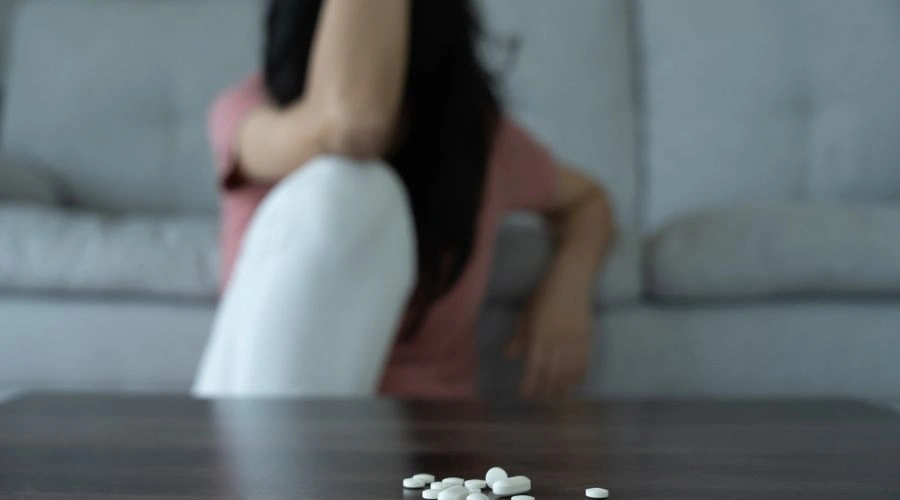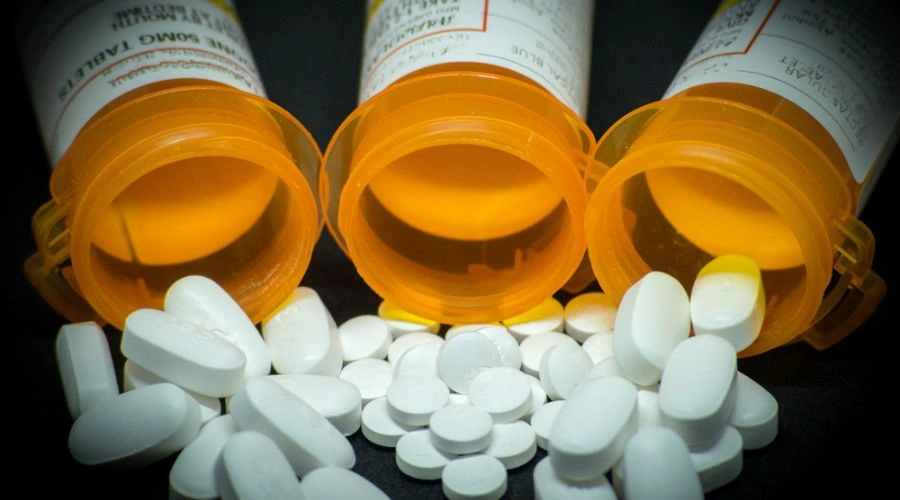Understanding the Link Between Percocet and Depression
As the opiate epidemic continues to wreak havoc on communities all across the country, drugs like Percocet continue to be a popular drug of choice for many who find themselves suffering from opioid abuse. But you may be wondering, does Percocet cause depression? My Percocet abuse began in high school and developed into a long-term Percocet addiction that took me years to overcome.
There is a definite link between Percocet abuse and depression. Prescription medication changes your brain chemistry and alters the way you express and feel certain emotions. I struggled with depression and anxiety nearly the entire time I was addicted to Percocet.
How Does Percocet Cause Depression?
It wasn’t until I checked myself into South Shores Detox and Recovery that I realized the damage my Percocet abuse had done to my mental health. This is true of many other drugs as well. When you are consistently introducing drugs like Percocet into your central nervous system, there will be negative effects on your brain.
Mental health disorders go hand in hand with drug abuse. Even if you are using prescribed Percocet, it’s very easy for it to turn into a deadly habit. If you want to know more about Percocet and its deadly consequences, continue reading to learn more about how to overcome Percocet abuse.
How Does Percocet Addiction Begin?

Percocet is a potent prescription painkiller that is typically prescribed to help with severe pain relief. Whether the result of an injury or physical ailment, Percocet helps relieve chronic pain at all different levels. The problem with an opiate like Percocet is the more that you do it, the more that your body builds a tolerance to it. Because of its euphoric effects, it is very easy to fall into Percocet abuse.
My Percocet addiction began when I started stealing it from a family member. They went through major surgery and got a prescription for pain relief from surgery. When their prescription ran out, I started seeking it out from other sources. Right around the time this was going on, opiates were becoming more and more available on the black market.
Struggling Through A Prescription Medication Addiction
Opiates like Percocet are pricey, and once you develop a tolerance you need to spend more and more money to even feel the effects. Although it is a potent prescription painkiller, it doesn’t take long to build up that tolerance. When I started to abuse Percocet, it only took half a pill to get me high. Fast forward a year later, and I needed at least two pills to feel anything. At thirty or forty dollars a piece, that’s almost a hundred dollars for one fix. You can see how this is not sustainable.
Prescription medication addiction can begin before you even realize it. Plenty of people develop addictions following a physical injury or surgery. It’s easy to develop a prescription drug addiction because you tell yourself and others that you need it. It’s medicine. For anyone with a developing addiction, you look for any excuse to continue using the drug.
The Link Between Percocet Abuse and Depression
Like any other opiate, Percocet alters the brain’s reward system. It also changes how you perceive pain and other physical sensations. Once your brain chemistry begins to change, mood disorders like depression begin to work their way in. While Percocet doesn’t cause depression on its own, addiction and withdrawal symptoms lead to low mood and a radical shift in your emotions.
Because Percocet addiction changes your brain, it leads to an overproduction of dopamine. When you are constantly seeking the euphoria that Percocet abuse brings, the crash becomes worse and worse. When you don’t have the drug, the decline in your mood is on full display. You can’t function without the drug.
What Are Common Percocet Withdrawal Symptoms?
The withdrawal symptoms from Percocet are similar to any other opiate withdrawal symptoms. Within twenty-four hours, you begin to feel anxiety, restlessness, and depressive symptoms. After the first couple of days, the physical symptoms worsen. Common physical withdrawal symptoms include headaches, nausea, muscle pain, fatigue, and insomnia.
Whenever I had to deal with Percocet withdrawal symptoms, I felt an intense discomfort that I couldn’t take my mind off of. I couldn’t do even the simplest tasks without being uncomfortable. You are lingering between intense emotional distress and extremely painful physical reactions. It’s a rollercoaster of agony that I wouldn’t wish on anyone.
Risking Overdose And Long Term Damage
One of the biggest risks associated with Percocet abuse is overdose. One of the saddest elements of drug abuse is the way in which users end up overdosing and dying. A lot of times addicts will try to get clean and then relapse. Addicts who relapse will often go back to using the same amount of opiates that they are used to using. When you haven’t built up a tolerance, it can easily lead to an overdose.
Percocet addiction can lead to irreversible damage to the respiratory and circulatory systems. Even after you get clean, there can still be physical effects that last long after your recovery. Liver damage is another common issue when it comes to long-term Percocet addiction. There is also an increased risk of mental health issues among addicts who abuse Percocet.
How Long Do Depressive Symptoms Last?
The longer you remain addicted to a drug like Percocet, the depressive symptoms will persist. Beyond the mood swings and withdrawal symptoms, another reason depression is common among opiate abusers is the fact that many addicts isolate themselves. When you’re an addict, you try to hide your addiction from loved ones.
Isolation is a big part of addiction. When I was abusing Percocet, the only people I associated with were drug dealers. I was living a solitary life and the loneliness definitely got to me. I wanted to reach out for help at multiple points, but I was ashamed of myself and the situation I was in. This is why so many addicts don’t seek help. Shame and addiction go hand in hand.
Seeking Treatment For Substance Abuse: What Can You Do?
If you are toying with the idea of getting clean, you’ve already done more than a lot of addicts. A lot of addicts think about going to treatment, but the vast majority never act on those feelings. It usually takes a catastrophic event (often referred to as “rock bottom”) before addicts seek help. In my case, I ended up in the hospital with severe liver damage.
Percocet had destroyed my mind and body. Now I was at a crossroads. I could either continue my drug abuse and end up dead within a few years or give it up and seek help. Luckily in my case, I had had enough. I was ready to change. I was sick of feeling like death every waking moment. The drugs weren’t even doing what they were supposed to anymore. What did I have to lose?
When you go to treatment following a Percocet addiction, you are physically and mentally exhausted. An addiction like that often requires a dual-diagnosis program that can help you address your mental and physical health at the same time. When I got to South Shores, they did everything they could to set me up for success.
Overcoming Substance Abuse And Getting Your Life Back
The withdrawal symptoms I went through during detox were difficult, but I knew what I was in for. The physical discomfort was nothing like the psychological symptoms I experienced. Luckily at South Shores, I had professionals around me at all times to help me through the depression. I didn’t feel normal for weeks. This is going to be the case no matter what prescription opioids you are addicted to.
Everyone’s addiction and recovery looks a little different, but no matter what, you are going to have to put the work in to get better. I was terrified of relapse when I got out of treatment, so I continued going to a support group almost every day. I still had urges and weak moments, but I kept my eye on the prize.
Reach Out to South Shores for Proven Percocet Support Today
The biggest point that I can make out of all of this is that addiction is going to change you. It’s going to be uncomfortable. It’s going to be a challenge. If you choose to seek treatment through a facility like South Shores, you will give yourself a fighting chance. Don’t listen to your persistent negative thoughts. You can find a million reasons to not get help, but you can also find plenty more reasons to go through with it. As long as you truly want to get clean, you can do it.
Make a confidential call to South Shores, it was a decision that really changed my life, so I encourage you to call them now!



